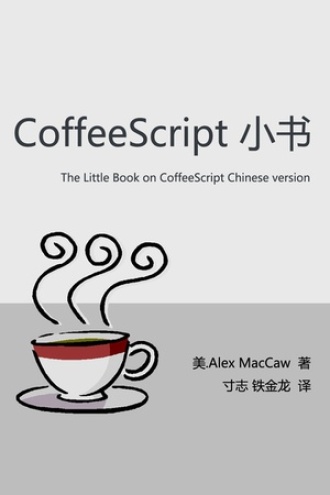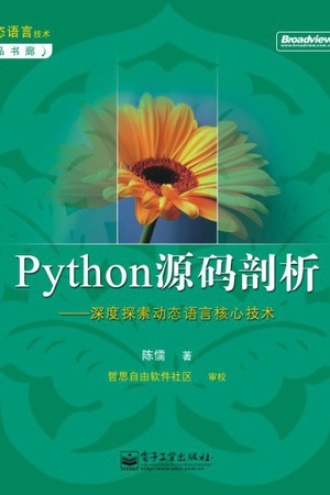出版社: Prentice Hall
副标题: Java
出版年: May 28, 2008
页数: 346
定价: USD 54.99
装帧: Paperback
ISBN: 9780321356680
内容简介 · · · · · ·
Written for the working Java developer, Joshua Bloch's Effective Java Programming Language Guide provides a truly useful set of over 50 best practices and tips for writing better Java code. With plenty of advice from an indisputable expert in the field, this title is sure to be an indispensable resource for anyone who wants to get more out of their code.
As a veteran developer ...
Written for the working Java developer, Joshua Bloch's Effective Java Programming Language Guide provides a truly useful set of over 50 best practices and tips for writing better Java code. With plenty of advice from an indisputable expert in the field, this title is sure to be an indispensable resource for anyone who wants to get more out of their code.
As a veteran developer at Sun, the author shares his considerable insight into the design choices made over the years in Sun's own Java libraries (which the author acknowledges haven't always been perfect). Based on his experience working with Sun's best minds, the author provides a compilation of 57 tips for better Java code organized by category. Many of these ideas will let you write more robust classes that better cooperate with built-in Java APIs. Many of the tips make use of software patterns and demonstrate an up-to-the-minute sense of what works best in today's design. Each tip is clearly introduced and explained with code snippets used to demonstrate each programming principle.
Early sections on creating and destroying objects show you ways to make better use of resources, including how to avoid duplicate objects. Next comes an absolutely indispensable guide to implementing "required" methods for custom classes. This material will help you write new classes that cooperate with old ones (with advice on implementing essential requirements like the equals() and hashCode() methods).
The author has a lot to say about class design, whether using inheritance or composition. Tips on designing methods show you how to create understandable, maintainable, and robust classes that can be easily reused by others on your team. Sections on mapping C code (like structures, unions, and enumerated types) onto Java will help C programmers bring their existing skills to Sun's new language. Later sections delve into some general programming tips, like using exceptions effectively. The book closes with advice on using threads and synchronization techniques, plus some worthwhile advice on object serialization.
Whatever your level of Java knowledge, this title can make you a more effective programmer. Wisely written, yet never pompous or doctrinaire, the author has succeeded in packaging some really valuable nuggets of advice into a concise and very accessible guidebook that arguably deserves a place on most any developer's bookshelf. --Richard Dragan
Topics covered:
Best practices and tips for Java
Creating and destroying objects (static factory methods, singletons, avoiding duplicate objects and finalizers)
Required methods for custom classes (overriding equals(), hashCode(), toString(), clone(), and compareTo() properly)
Hints for class and interface design (minimizing class and member accessibility, immutability, composition versus inheritance, interfaces versus abstract classes, preventing subclassing, static versus nonstatic classes)
C constructs in Java (structures, unions, enumerated types, and function pointers in Java)
Tips for designing methods (parameter validation, defensive copies, method signatures, method overloading, zero-length arrays, hints for Javadoc comments)
General programming advice (local variable scope, using Java API libraries, avoiding float and double for exact comparisons, when to avoid strings, string concatenation, interfaces and reflection, avoid native methods, optimizing hints, naming conventions)
Programming with exceptions (checked versus run-time exceptions, standard exceptions, documenting exceptions, failure-capture information, failure atomicity)
Threading and multitasking (synchronization and scheduling hints, thread safety, avoiding thread groups)
Serialization (when to implement Serializable, the readObject(), and readResolve() methods)
Effective Java: Second Edition的创作者
· · · · · ·
-
![[美] 约书亚·布洛克](https://img1.doubanio.com/view/personage/m/public/582af4cc1df588cd41b562ffdd7e109d.jpg) 约书亚·布洛克 作者
约书亚·布洛克 作者
作者简介 · · · · · ·
Joshua Bloch is chief Java architect at Google and a Jolt Award winner. He was previously a distinguished engineer at Sun Microsystems and a senior systems designer at Transarc. Bloch led the design and implementation of numerous Java platform features, including JDK 5.0 language enhancements and the award-winning Java Collections Framework. He coauthored Java™ Puzzlers (Addiso...
Joshua Bloch is chief Java architect at Google and a Jolt Award winner. He was previously a distinguished engineer at Sun Microsystems and a senior systems designer at Transarc. Bloch led the design and implementation of numerous Java platform features, including JDK 5.0 language enhancements and the award-winning Java Collections Framework. He coauthored Java™ Puzzlers (Addison-Wesley, 2005) and Java™ Concurrency in Practice (Addison-Wesley, 2006).
目录 · · · · · ·
Preface
Acknowledgments
1 Introduction
2 Creating and Destroying Objects
Item 1: Consider static factory methods instead of constructors
· · · · · · (更多)
Preface
Acknowledgments
1 Introduction
2 Creating and Destroying Objects
Item 1: Consider static factory methods instead of constructors
Item 2: Consider a builder when faced with many constructor parameters
Item 3: Enforce the singleton property with a private constructor or an enum type
Item 4: Enforce noninstantiability with a private constructor
Item 5: Avoid creating unnecessary objects
Item 6: Eliminate obsolete object references
Item 7: Avoid finalizers
3 Methods Common to All Objects
Item 8: Obey the general contract when overriding equals
Item 9: Always override hashCode when you override equals
Item 10: Always override toString
Item 11: Override clone judiciously
Item 12: Consider implementing Comparable
4 Classes and Interfaces
Item 13: Minimize the accessibility of classes and members
Item 14: In public classes, use accessor methods, not public fields
Item 15: Minimize mutability
Item 16: Favor composition over inheritance
Item 17: Design and document for inheritance or else prohibit it
Item 18: Prefer interfaces to abstract classes
Item 19: Use interfaces only to define types
Item 20: Prefer class hierarchies to tagged classes
Item 21: Use function objects to represent strategies
Item 22: Favor static member classes over nonstatic
5 Generics
Item 23: Don't use raw types in new code
Item 24: Eliminate unchecked warnings
Item 25: Prefer lists to arrays
Item 26: Favor generic types
Item 27: Favor generic methods
Item 28: Use bounded wildcards to increase API flexibility
Item 29: Consider typesafe heterogeneous containers
6 Enums and Annotations
Item 30: Use enums instead of int constants
Item 31: Use instance fields instead of ordinals
Item 32: Use EnumSet instead of bit fields
Item 33: Use EnumMap instead of ordinal indexing
Item 34: Emulate extensible enums with interfaces
Item 35: Prefer annotations to naming patterns
Item 36: Consistently use the Override annotation
Item 37: Use marker interfaces to define types
7 Methods
Item 38: Check parameters for validity
Item 39: Make defensive copies when needed
Item 40: Design method signatures carefully
Item 41: Use overloading judiciously
Item 42: Use varargs judiciously
Item 43: Return empty arrays or collections, not nulls
Item 44: Write doc comments for all exposed API elements
8 General Programming
Item 45: Minimize the scope of local variables
Item 46: Prefer for-each loops to traditional for loops
Item 47: Know and use the libraries
Item 48: Avoid float and double if exact answers are required
Item 49: Prefer primitive types to boxed primitives
Item 50: Avoid strings where other types are more appropriate
Item 51: Beware the performance of string concatenation
Item 52: Refer to objects by their interfaces
Item 53: Prefer interfaces to reflection
Item 54: Use native methods judiciously
Item 55: Optimize judiciously
Item 56: Adhere to generally accepted naming conventions
9 Exceptions
Item 57: Use exceptions only for exceptional conditions
Item 58: Use checked exceptions for recoverable conditions and runtime exceptions for programming errors
Item 59: Avoid unnecessary use of checked exceptions
Item 60: Favor the use of standard exceptions
Item 61: Throw exceptions appropriate to the abstraction
Item 62: Document all exceptions thrown by each method
Item 63: Include failure-capture information in detail messages
Item 64: Strive for failure atomicity
Item 65: Don't ignore exceptions
10 Concurrency
Item 66: Synchronize access to shared mutable data
Item 67: Avoid excessive synchronization
Item 68: Prefer executors and tasks to threads
Item 69: Prefer concurrency utilities to wait and notify
Item 70: Document thread safety
Item 71: Use lazy initialization judiciously
Item 72: Don't depend on the thread scheduler
Item 73: Avoid thread groups
11 Serialization
Item 74: Implement Serializable judiciously
Item 75: Consider using a custom serialized form
Item 76: Write readObject methods defensively
Item 77: For instance control, prefer enum types to readResolve
Item 78: Consider serialization proxies instead of serialized instances
Appendix: Items Corresponding to First Edition
References
Index
· · · · · · (收起)
喜欢读"Effective Java: Second Edition"的人也喜欢的电子书 · · · · · ·
喜欢读"Effective Java: Second Edition"的人也喜欢 · · · · · ·
Effective Java: Second Edition的书评 · · · · · · ( 全部 69 条 )
如何变成Java文艺青年
看书前不建议直接看评论
Effective Java中文第三版 读后感
这篇书评可能有关键情节透露
Effective Java中文第三版, 本书上一个版本还是2008年的事情,时光荏苒,在前行的道路上Java与我们一路相伴,中间各种新特性已经层出不穷,让我们目不暇接,但从学习java的角度来说夯实基础才是最总要的,这本书就是为有了一定java基础的同学准备的,里面提炼了90多项条款共大... (展开)> 更多书评 69篇
论坛 · · · · · ·
在这本书的论坛里发言这本书的其他版本 · · · · · · ( 全部17 )
-
机械工业出版社 (2009)9.1分 1833人读过
-
机械工业出版社 (2003)8.9分 1092人读过
-
机械工业出版社 (2018)8.7分 428人读过
-
Addison-Wesley Professional (2018)9.7分 189人读过
在哪儿借这本书 · · · · · ·
以下书单推荐 · · · · · · ( 全部 )
- 闲着没事读读书(四) (鹿小羽)
- MOOC教材列表 (老伐开心)
- 精彩Java图书 (正人)
- 程序员系列 (海纳川)
- CSDN论坛频道和博客频道后面的那个频道 (架构师)
谁读这本书? · · · · · ·
二手市场
· · · · · ·
订阅关于Effective Java: Second Edition的评论:
feed: rss 2.0





















0 有用 PinkER 2012-03-03 21:42:12
虽说中间很多不错的内容来自一些大牛的Blog,但好歹也算一本好书了。。
0 有用 秋叶刀市 2012-04-27 21:03:31
it's time to refresh my java knowledge now, and it's one of the best books to choose. 读一遍,感觉更好一些,应该多读几遍。
0 有用 g9 2008-09-02 16:21:44
Java 5后行走江湖三大件之一啊: Effective Java Java Generics Java Concurrency in Practice 相比之下,Practical API Design: Confession of a Java Framework Designer就相当啰嗦了
1 有用 Alien 2015-07-02 07:03:50
Very practical technique to use Java.
0 有用 Kymair 2009-06-08 17:08:04
字字珠玑,读过之后顿时觉得自己的程序千疮百孔,每一页都有巧妙无比但又实用的技巧与方法。必定要反复过目的经典